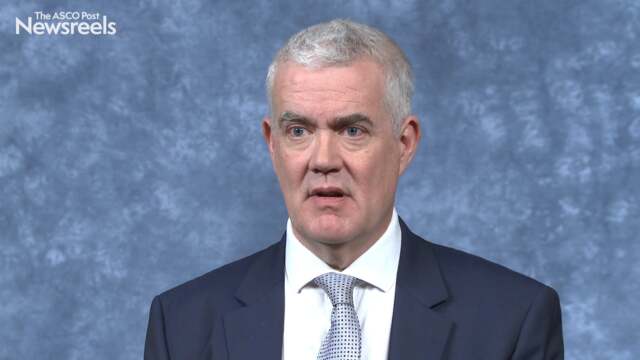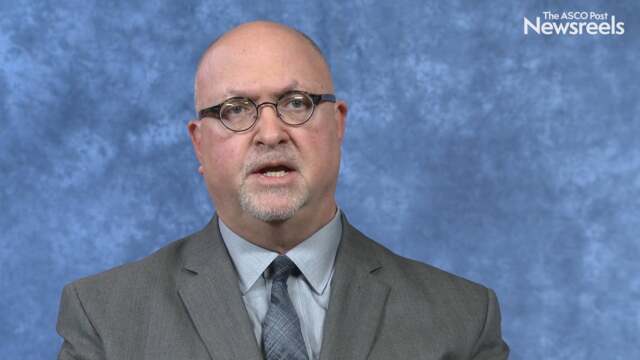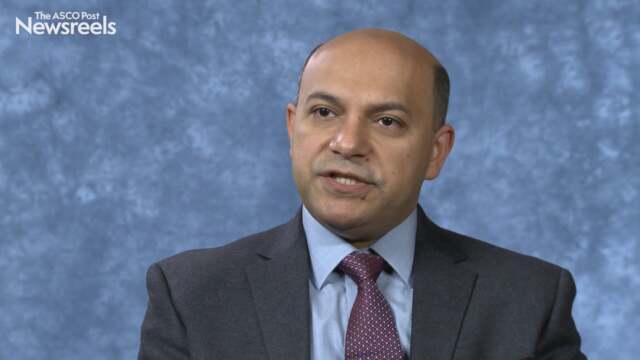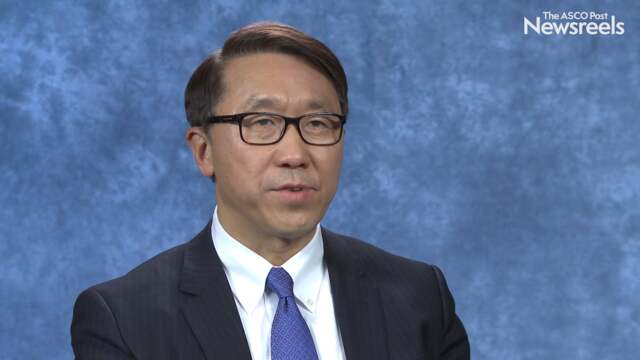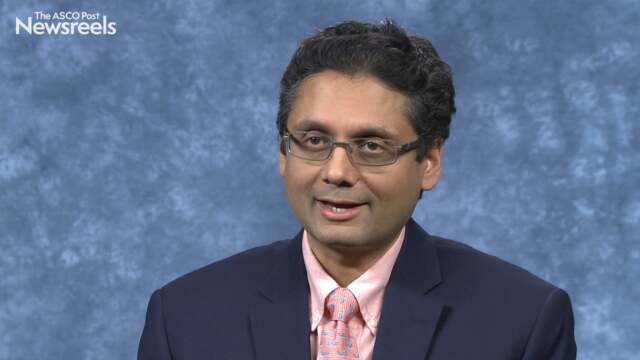Kyaw L. Aung, MBBS, PhD, on Pancreatic Cancer: Results From the COMPASS Trial
2018 Gastrointestinal Cancers Symposium
Kyaw L. Aung, MBBS, PhD, of Princess Margaret Cancer Centre, discusses early study findings on genomics-driven precision medicine for advanced pancreatic ductal carcinoma (Abstract 211).
Mark Saunders, MD, PhD, of Christie Hospital, discusses study findings on tumor sidedness and the influence of chemotherapy duration on disease-free survival (Abstract 558).
David H. Ilson, MD, PhD, of Memorial Sloan Kettering Cancer Center, discusses the merits of preoperative chemotherapy vs chemoradiotherapy, the role of targeted agents, recent results from genomic profiling, and whether PET scans can guide neoadjuvant treatment.
Basem Azab, MD, of the Sylvester Comprehensive Cancer Center, University of Miami, discusses the impact on overall survival when more than 2 months elapse between finishing neoadjuvant therapy and undergoing esophagectomy (Abstract 2).
Andrew X. Zhu, MD, PhD, of Massachusetts General Hospital, discusses study findings on pembrolizumab in patients with advanced hepatocellular carcinoma previously treated with sorafenib (Abstract 209).
Manish A. Shah, MD, of Weill Cornell Medicine, discusses phase III study findings on cisplatin plus capecitabine or fluorouracil with or without ramucirumab as first-line therapy in patients with metastatic gastric or gastroesophageal junction adenocarcinoma (Abstract 5).
